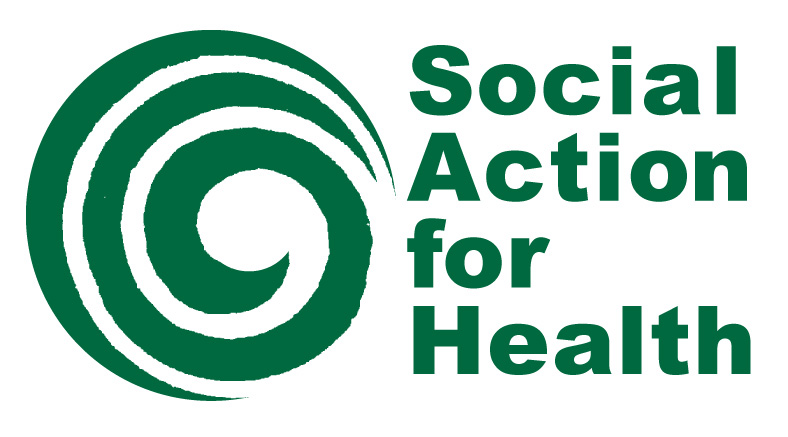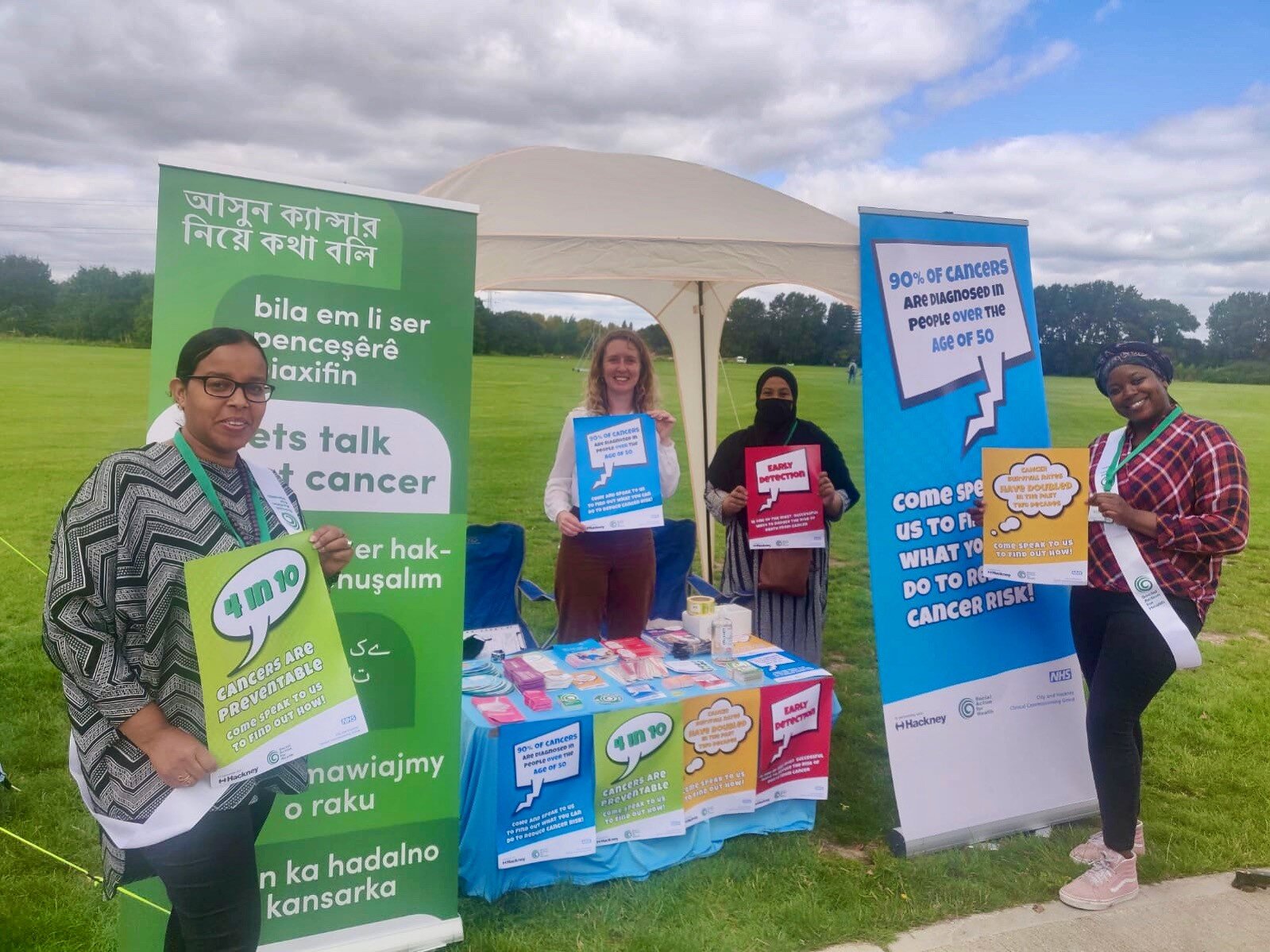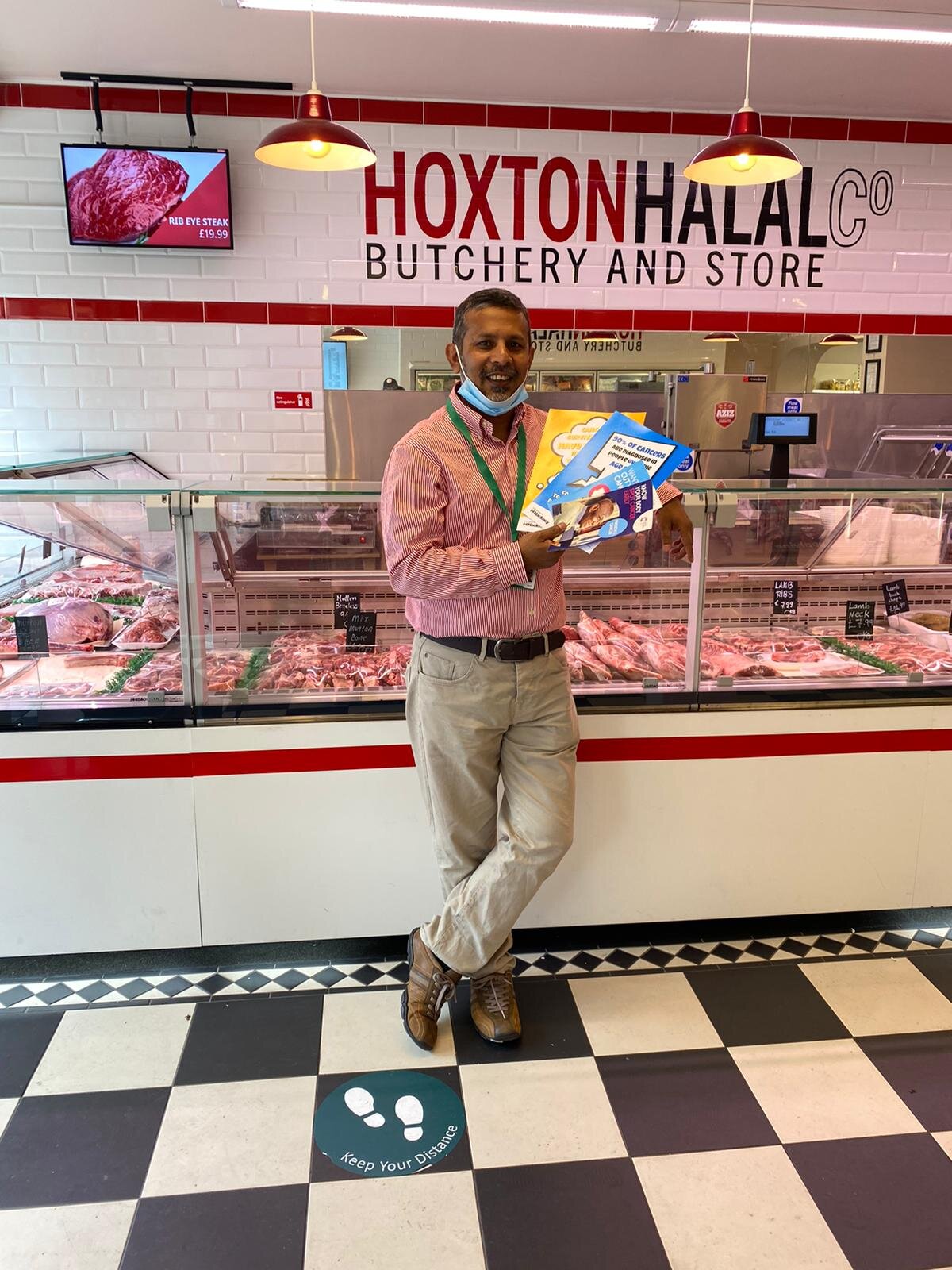Hackney Cancer Awareness
NHS statistics show a lack of awareness of cancer symptoms and late diagnosis are linked with poorer survival outcomes.
Data indicates Black African, Black Caribbean and Turkish / Kurdish communities are disproportionality affected by cancer compared to the wider Hackney population.
We were commissioned by the Hackney Clinical Commissioning Group to run a short-term cancer awareness project, with a focus on these communities, to:
increase awareness of the general signs and symptoms of cancer and of abdominal symptoms in particular, with a focus on Black and minoritised ethnic groups
increase confidence in seeking earlier medical intervention from GPs
raise awareness and encourage attendance at recommended cancer screenings when eligible for an appointment
Our Approach
We ran a range of engagement activities in the borough of Hackney, including holding outreach stalls, visiting shops and community venues, and campaigning with posters.
We engaged members of the public in ‘community conversations’ about cancer and gave up-to-date and accurate information about cancer, signs and symptoms, screening programmes and eligibility.
We also ran two focus groups where we discussed cancer, symptoms of cancer, and cancer screenings in trusted community venues. Participants were encouraged to share their own experiences and concerns, and were asked to recommend what support and information the community needs in relation to cancer awareness and cancer more generally.
Our insights were collected and reported back to Hackney CCG and presented at the Hackney Cancer Collaborative.
10 Key Themes and insights
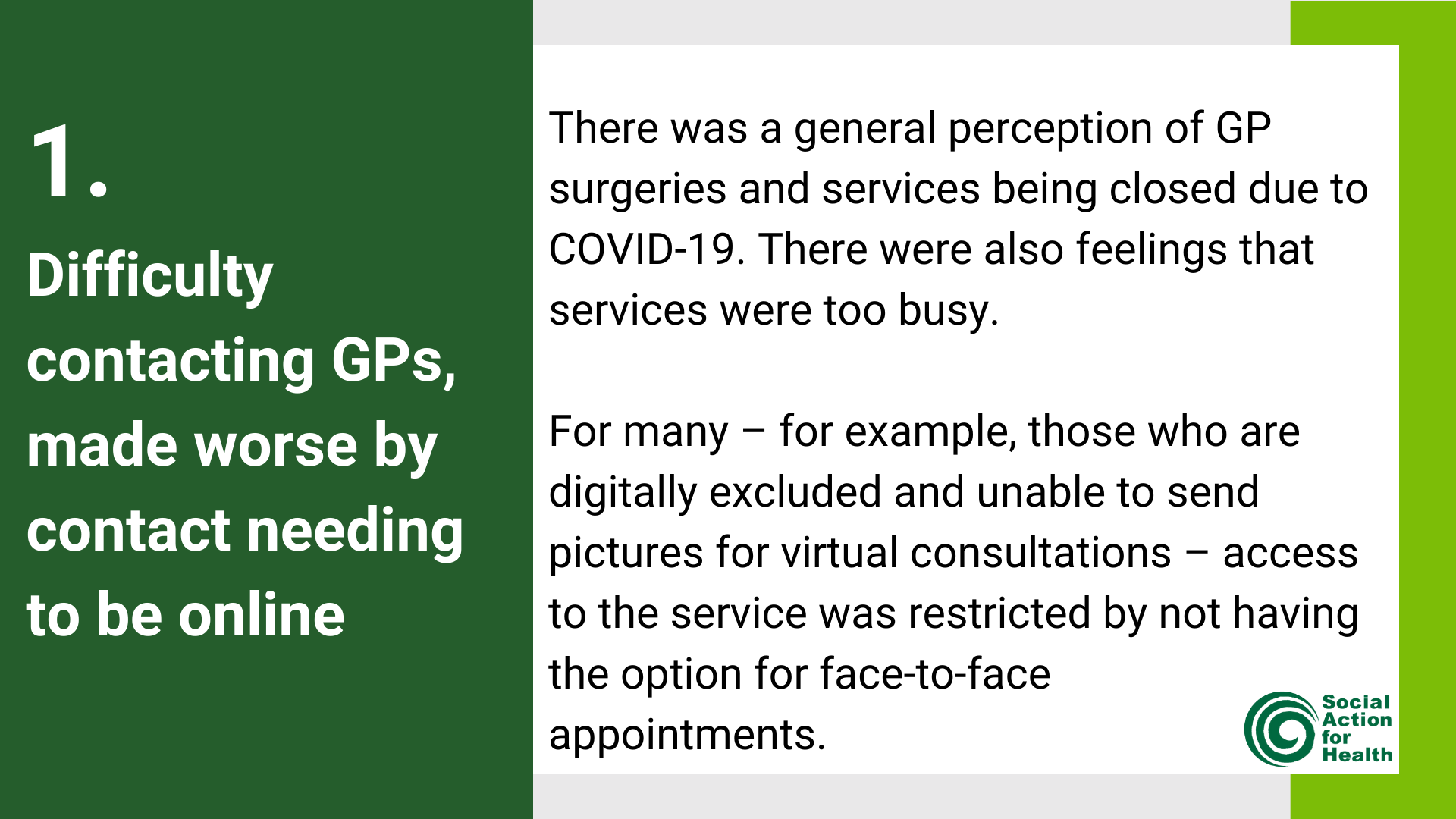
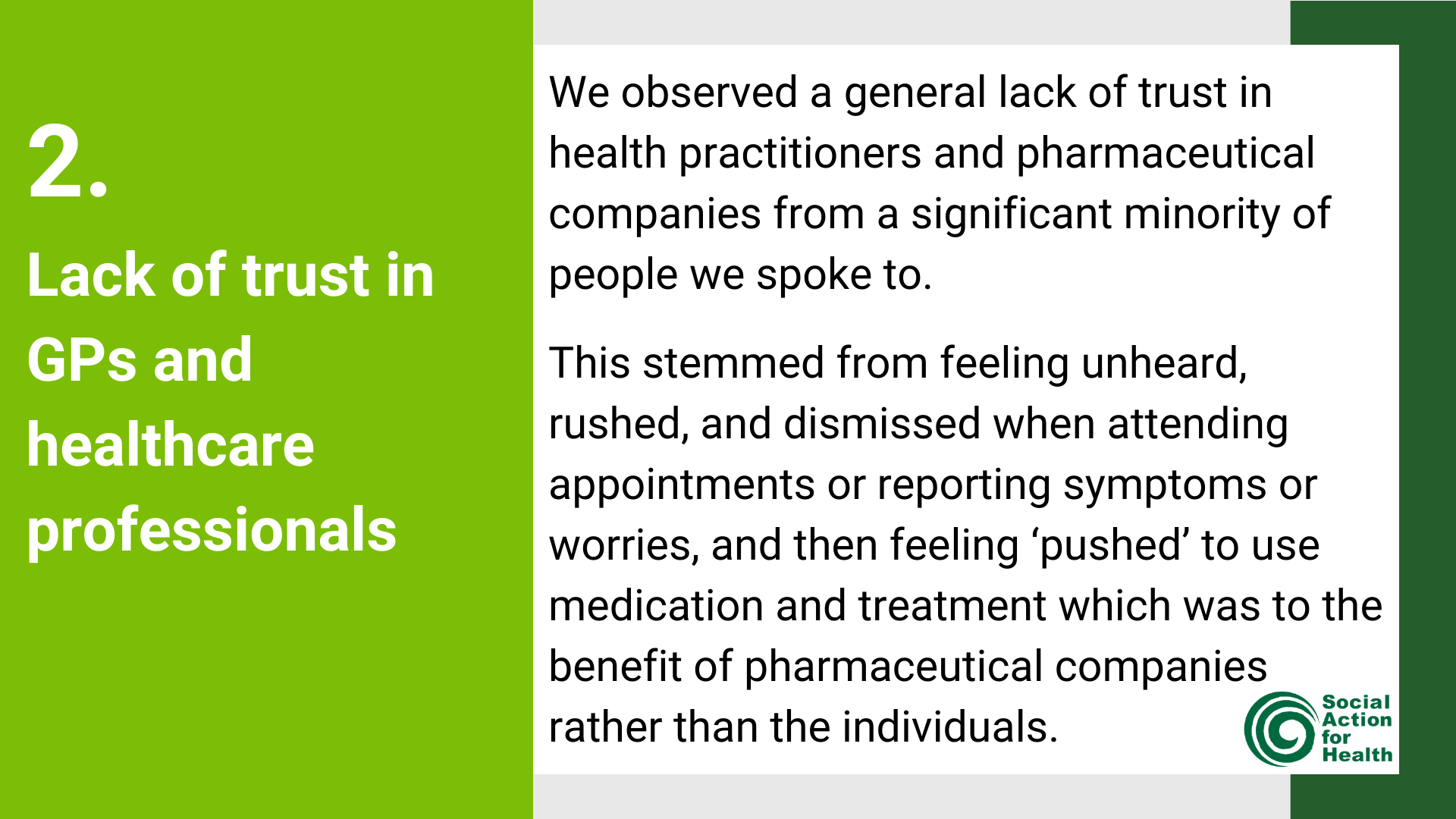
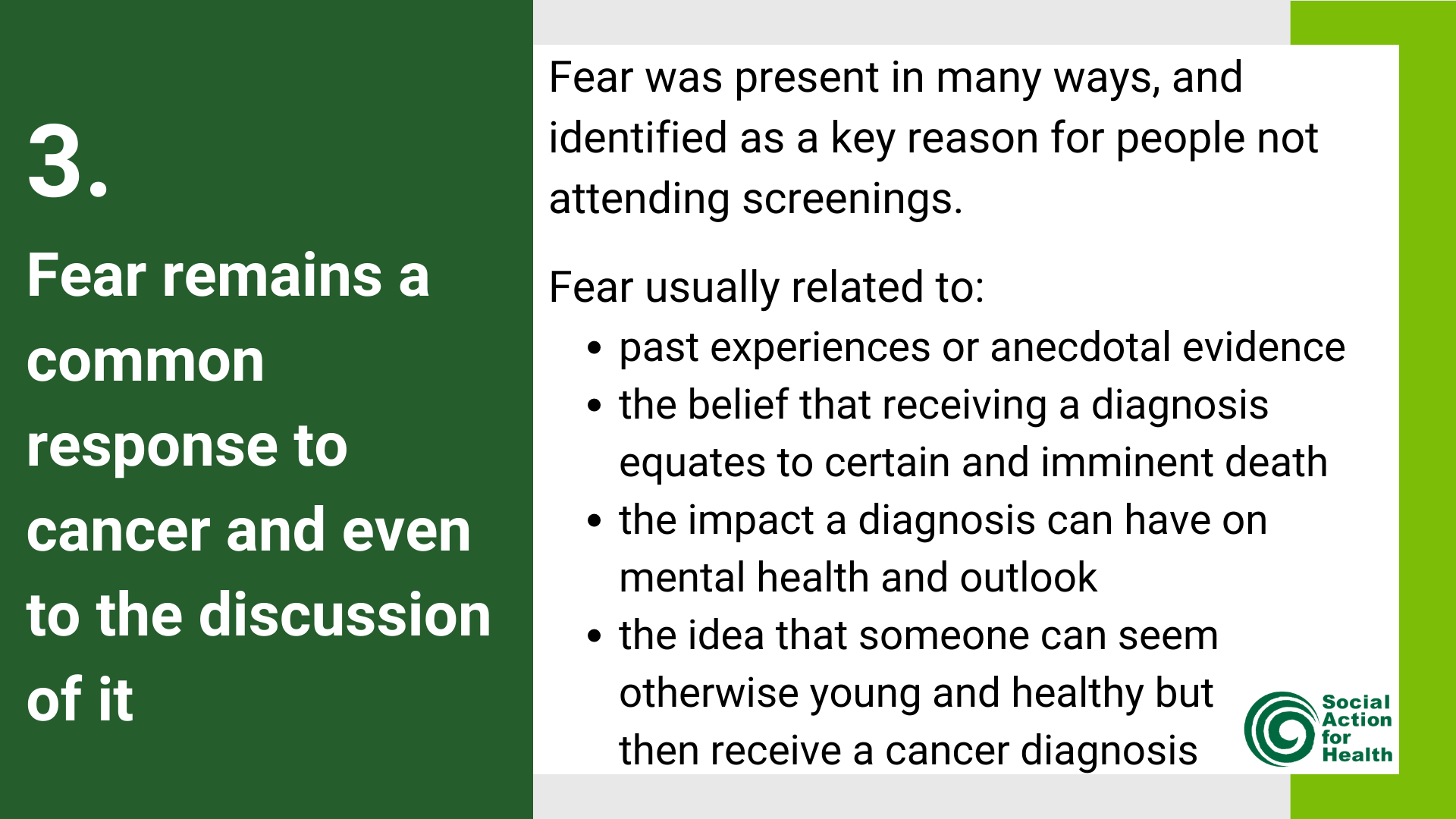
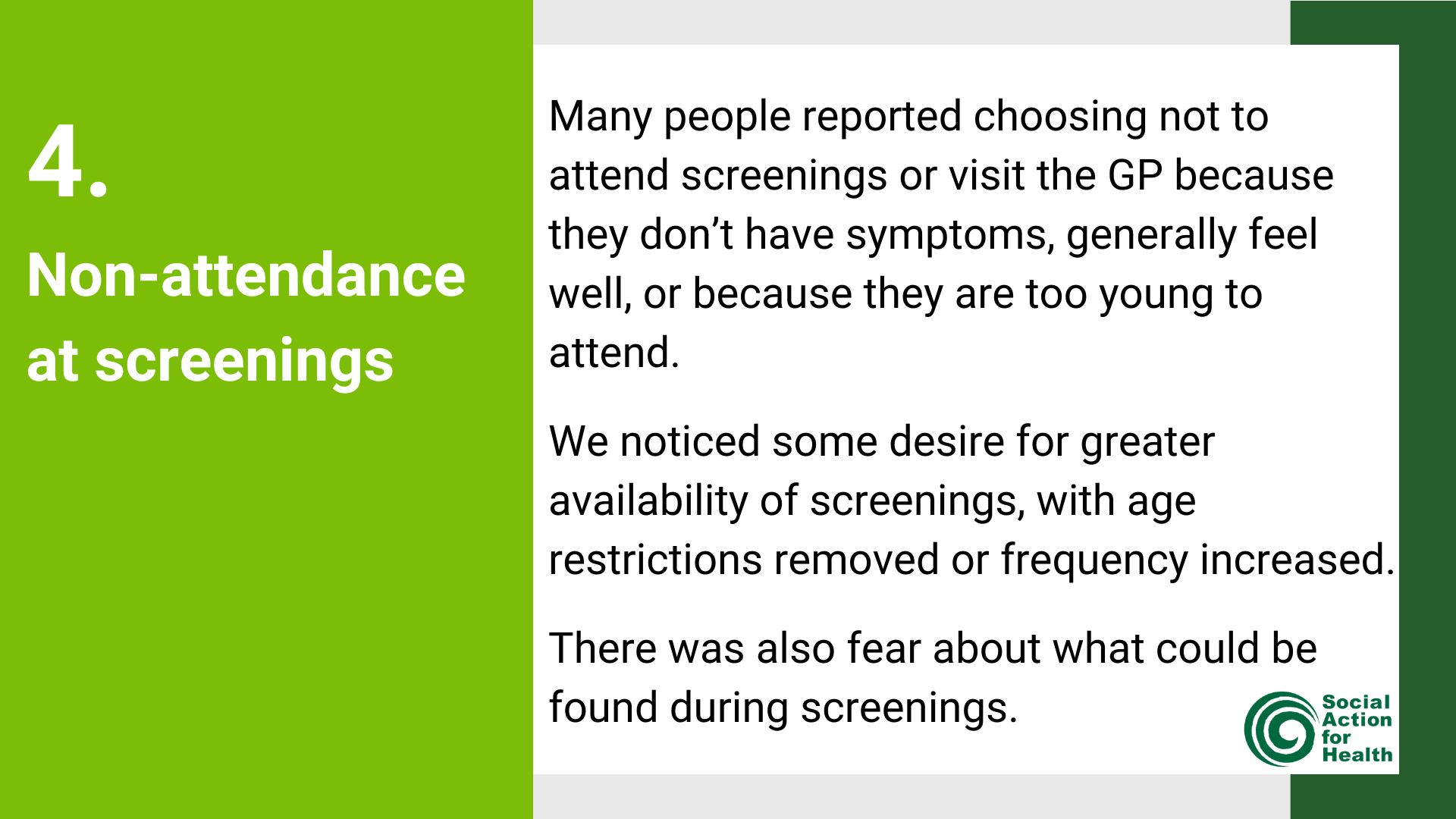
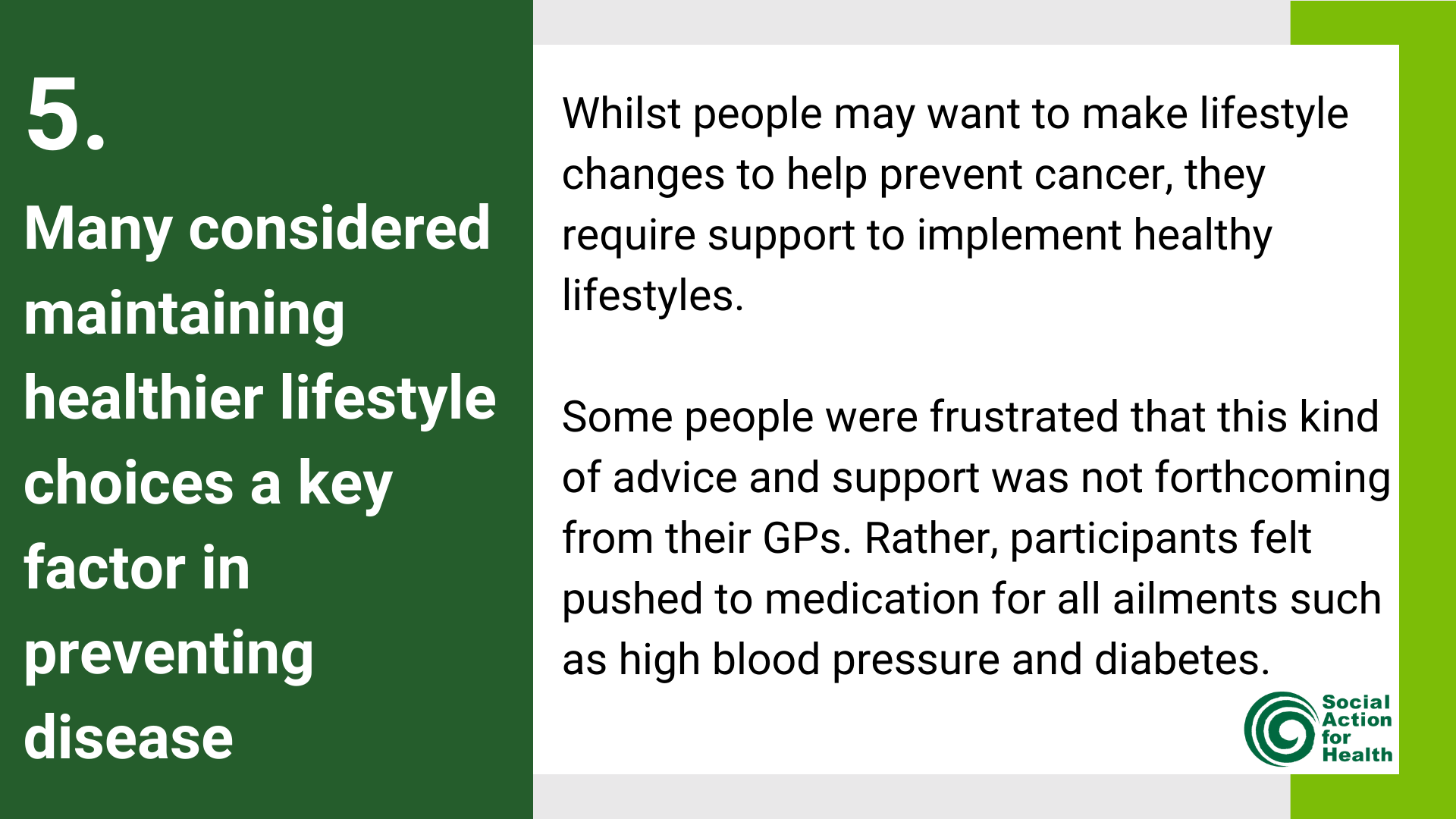
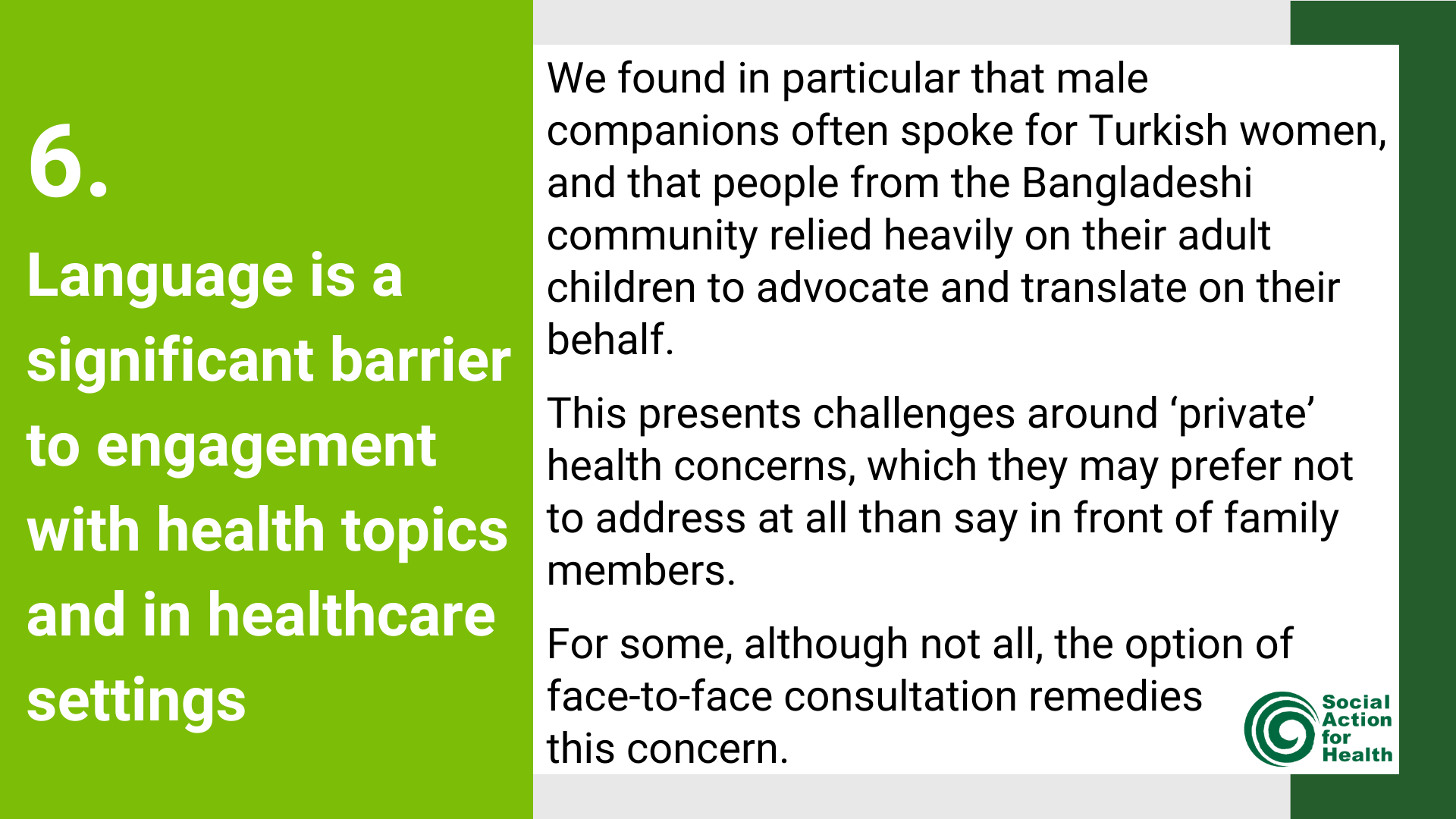
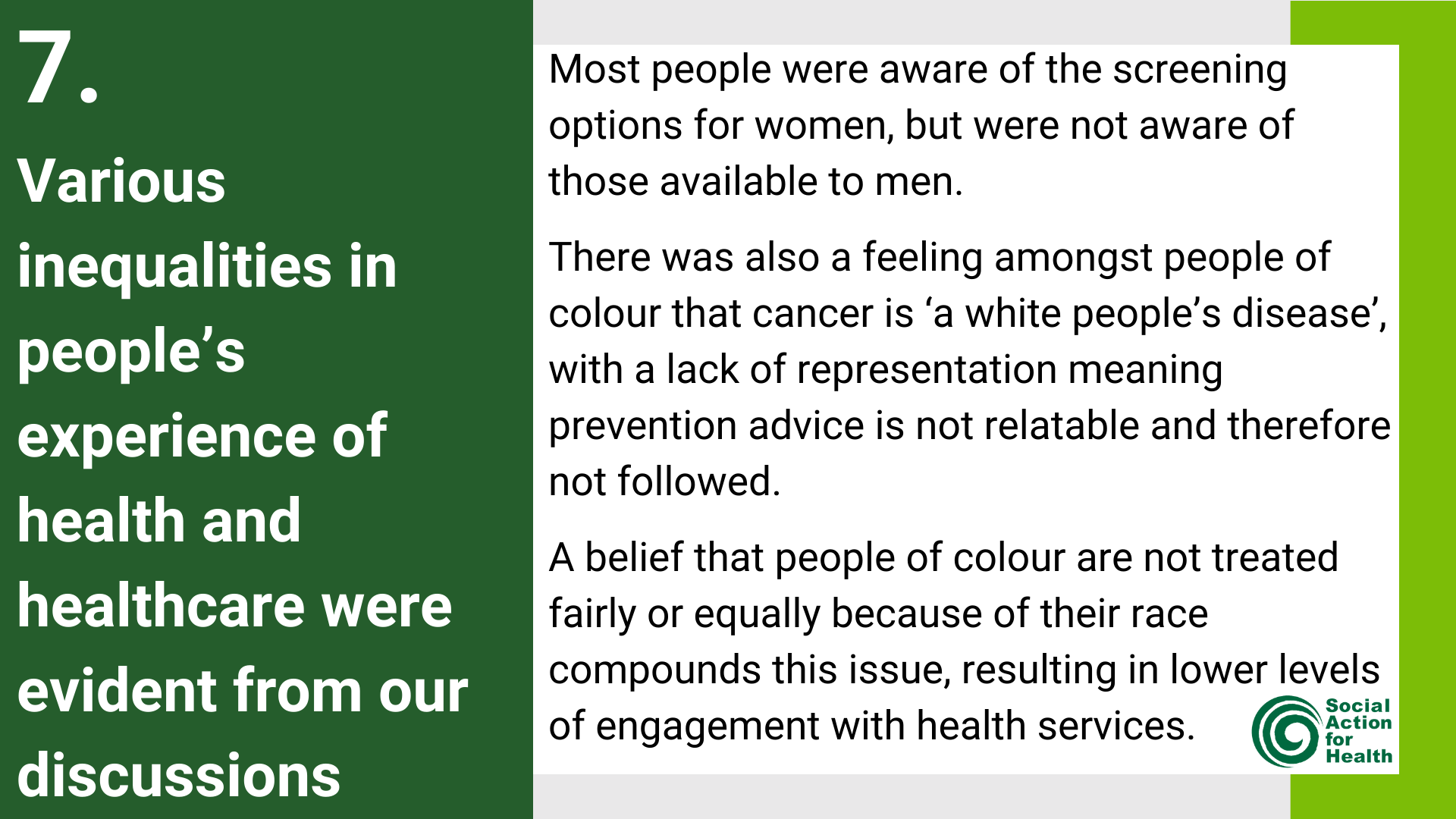
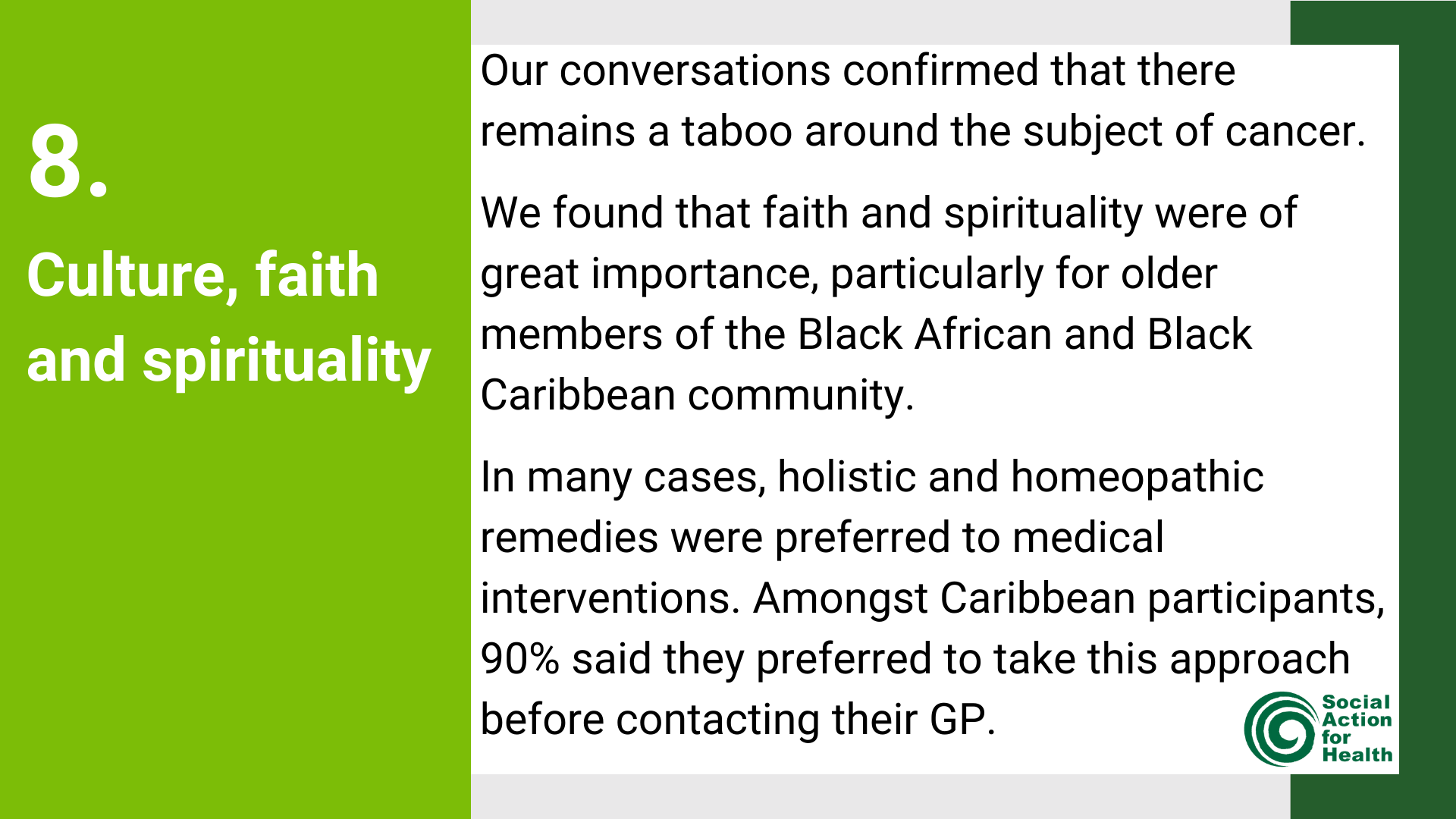
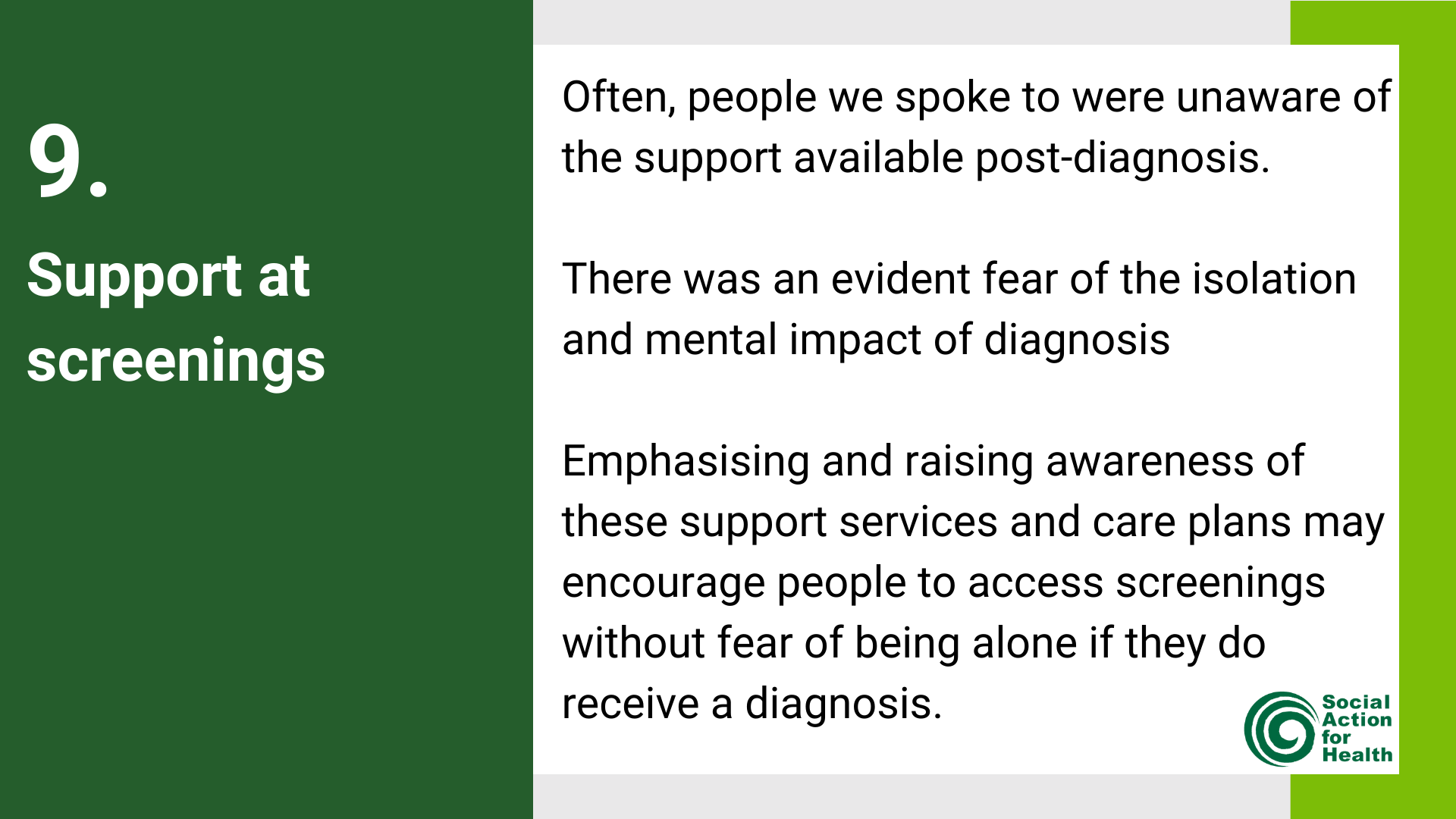

Further Insights and Recommendations
Meeting members of the target communities in spaces they were comfortable and familiar with was very effective. The team felt that being from mixed backgrounds, speaking community languages and being reflective of the target communities, helped them build a level of trust and transparency which in turn encouraged people to be open and engage in conversation and with the information available.
The focus groups were the greatest success of the project overall. They had the most impact in giving information and providing support and service to the community. The groups recognised the appetite for socialisation and the need for an informal environment to build trust for people to share their experiences, ask questions, and be sign-posted to further information. Participants were very engaged, and conversations continued long after the session had ended, with many expressing an interest in attending regular sessions in this format. We would recommend considering this approach for future engagement and information-sharing projects, and as an effective means of informing approaches to awareness-raising campaigns.
